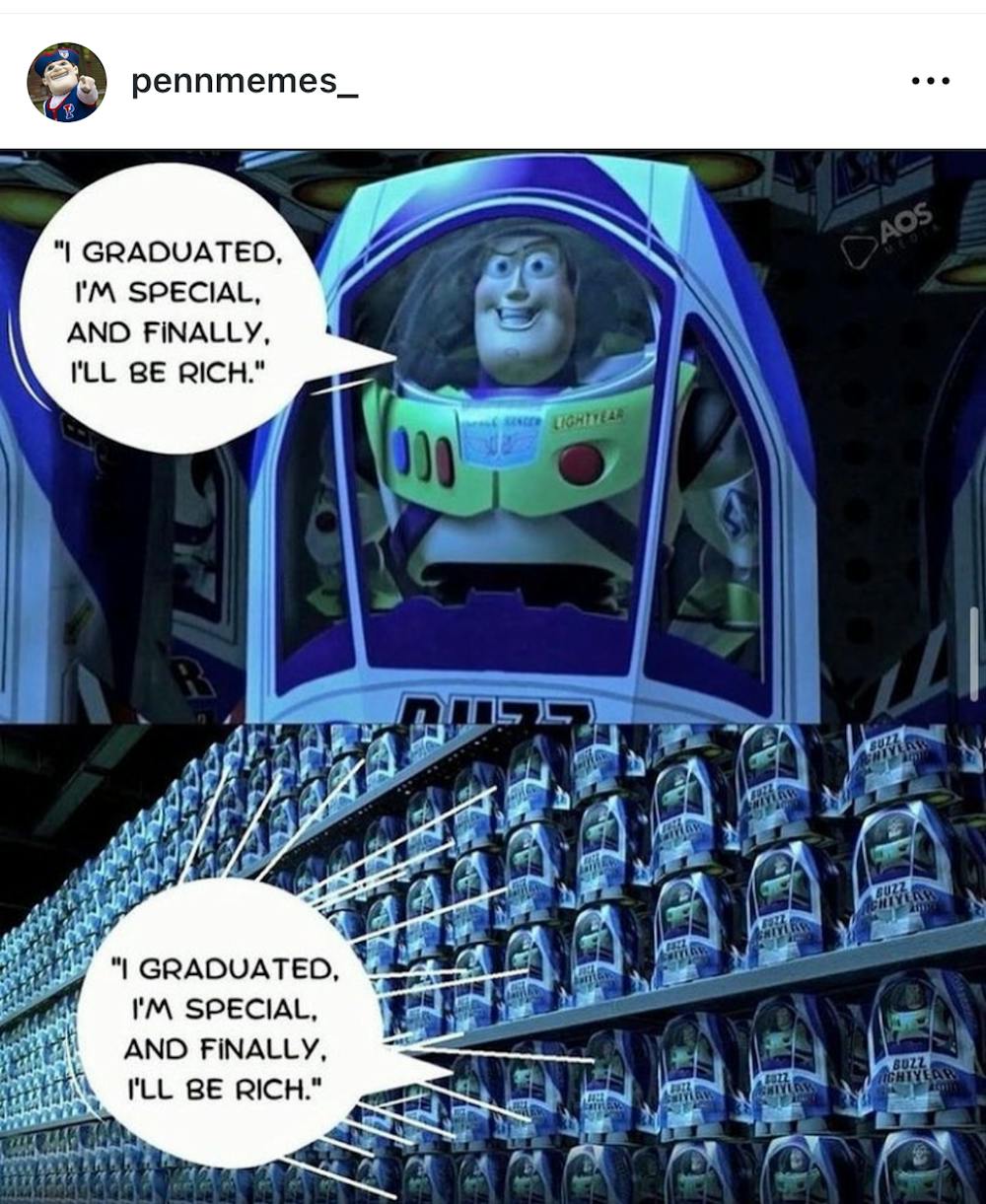
The Wharton School has notoriously placed some of the most successful business people in their roles today. There is a very clear Wharton-to-Wall-Street pipeline that is attractive for many students who aim to attend the school. If it has been your dream and life goal to be an investment banker or a consultant, this is the perfect place for you. However, if you are looking for a career outside of corporate finance or consulting, the “best business school” title may have fooled you.
Coming to university, many students are eager to explore their interests and passions, discover what they’re good at, and really find what career is right for them. Generally speaking, that is the point of attending college. Higher education provides an environment for students to gain specialized education and resources for their respective interests and helps people find their place in society. As first years, most students only have a vague idea of what they want beyond college and seek opportunities to help them decide that. That is why college is four years long: There is an allotted time for you to develop, learn about yourself, and make the best decisions for your career and your life.
Ironically enough, the top of Wharton’s undergraduate career exploration web page reads, “It’s OK to come to Wharton and not know what you want to do. The purpose of college is to expand your mind, and not just academically. We want you to think of all the possibilities you have ahead of you, and we’re ready and excited to help you do that.”
As advertised, Wharton offers a variety of different concentration options for students to study, and each of those programs are on par with one another. Academically, the resources are there for students to fulfill the major and concentrations listed on their diplomas. Unfortunately, Wharton’s pre-professional nature carries arguably more weight than the curriculum and coursework. And these resources are slightly less diverse.
Immediately upon arrival, Wharton first years are aggressively told exactly what they need to be doing and introduced into an environment where career exploration and reflection are not encouraged. We enter a space where the Wharton Investment & Trading Group and Wharton Undergraduate Finance Club are at the top of the professional pyramid, and finance and consulting are the only two seemingly viable options for a career. Many students who entered Penn with diverse passions and goals slowly start to fall victim to the "finance bro" indoctrination that Wharton so proudly perpetuates.
Coming into Penn, my professional aspirations involved attending law school and pursuing a career in corporate law. I applied to Wharton as a legal studies concentration and was so excited to be immersed into the program to expand my knowledge on corporate law and its related careers. Now, as I finish my first semester as a sophomore, I find myself completely strayed from my initial goals. While this isn’t to say that exploration and change across different majors shouldn’t be encouraged, I feel like I wasn’t provided adequate resources to thoroughly explore a legal-studies-related career. My divergence from my primary interests had more to do with the overwhelming presence of corporate finance resources over any other department in Wharton. And I’m sure this is a common sentiment across other less popular concentration options.
Further, this overbearing culture extends beyond student-created norms. Even the resources provided by the school — whether career fairs or information sessions — cater mainly towards the common pathways such as finance and consulting, depriving many students of the varying professional resources to which they are also entitled. Wharton offers a limited horizontal range of career tools, yet provides an extensive vertical depth of resources tailored to specific professions.
The overly pre-professional environment on campus not only has the ability to incorrectly influence the trajectory of students’ lives, but suppresses unique individuality. With the lack of diverse career resources and recruiting cycles starting as early as sophomore fall, students fail to see their personal, academic, and professional development to the end. They are denied the opportunity to find a niche that aligns with their specific interests and skills, and instead fall into Wharton’s homogenizing culture.

Our goals become so consumed with what we are fed to value with the highest priority: finance, consulting, and recruiting. As a result, these forced ideals undermine authenticity by overpowering the importance of our core passions and skills, straying us away from our initial motives to achieve. By training us to apply our previous knowledge and experiences in exactly the same way, Wharton just produces different versions of the same professional. Although learning and mastering those specific application skills is crucial to efforts such as problem solving, brainstorming, and even interviewing, it limits exploration, innovation, and creativity in other spheres. The point of college is not to create copies of the same person, it is to curate developed academics and professionals inspired to make a unique impact in the world.
A common counterargument to the factory-like production of investors is that many finance jobs are simply “a means to an end.” Granted, it may be logical to work as an investment banker for a couple years to be better equipped to be a venture capitalist or an entrepreneur in the future, but why can’t we cultivate our ultimate goals in college? The focus of university has shifted from personal and intellectual development to an efficient and streamlined production of professionals. Why do we spend our entire four years preparing ourselves for the “means” and ignore the reason we worked so hard to attend this school?
SAMRA LULSEGED is a Wharton sophomore studying finance and legal studies from Castro Valley, Calif. Her email is samral@wharton.upenn.edu.
The Daily Pennsylvanian is an independent, student-run newspaper. Please consider making a donation to support the coverage that shapes the University. Your generosity ensures a future of strong journalism at Penn.
Donate











